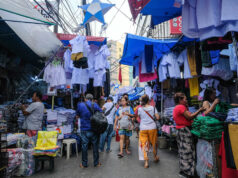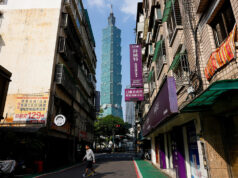DEBATES between candidates for public office are among the means some media and civil society organizations are using to help voters decide who deserve their support. They’re especially useful in the Philippines, where those running for this or that post are often hardly distinguishable from each other in terms of platforms and programs, if at all they have any.
Despite their potential for enlightening the voters, the Duterte regime candidates for senator have refused to debate with opposition candidates on the argument that they serve no useful purpose. What could be the real reason for their refusal is that unlike in many past campaigns, this year’s is on the issues that confront the nation. The change is due to the opposition candidates, most of whom have anchored their quest for votes on their support for human rights and peace talks; ending the extrajudicial killings of the “war on drugs” that have targeted the poor; enhancing environmental protection; defending Philippine sovereign rights against capitalist China’s military and economic aggression; crafting an anti-poverty program based on fundamental social and economic reforms; and assuring democratic participation in governance, among others.
In contrast, the candidates of the Duterte regime hardly have any program to speak of, unless one can call mindless support for everything the regime does a program. One has admitted he knows nothing about the economy, but is avidly for the restoration of the death penalty and for continuing the murderous “war on drugs” of which he was the enforcer when he was Director General of the Philippine National Police. Another has no visible qualification other than his having been the gofer of President Rodrigo Duterte. Still another is driving her campaign on the claim that she is well-qualified because of her Princeton University and University of the Philippines degrees, which presidential daughter Sara Duterte practically confirmed as fictional when she argued that honesty should not be an election issue because “everyone lies.”
Apparently on the assumption that the support of the 16 million who elected him in 2016 is transferable, while warning government officials not to campaign for any candidate or any party, Mr. Duterte has been endorsing his most favored candidates in violation of his own directive. He has been calling opposition candidates names, and falsely claiming that those running for reelection among them did nothing when they were in Congress. He’s doing these in-between urging his audiences during his public appearances to rob and kill bishops and bragging about his sexual prowess.
But Mr. Duterte’s latest ploy to influence the outcome of the May elections is to release a partial list of politicians he claims to be involved in the drug trade either as drug lords themselves or as their protectors. In one more demonstration of how either unthinking or complicit some media organizations are, despite the ethical responsibility of minimizing the harm a news report can do, several published the names of the so-called “narco politicians” in Mr. Duterte’s list — against whom, his own police say, they have yet to have sufficient evidence.
Some of those in the list have not only avowed their innocence but have also expressed alarm over their inclusion in it. Not only have earlier regime lists turned out to be replete with such inaccuracies as the inclusion of the dead; they have also led to the murder of some who were still with the living. Among the latter was the father of an alleged drug lord who was killed by the police while he was already in prison, because he had miraculously gained access to a gun, and had “fought back” when policemen tried to serve him a warrant of arrest for another crime.
Oddly enough, one regime candidate for senator said the list is “just a statement of fact,” and should prod those in it to prove their innocence. That sterling example of dynastic incompetence has apparently forgotten, or has probably never realized, that it is for the State to prove the guilt of those accused of crimes who, the Constitution declares in Article III Section 14, are presumed innocent until proven guilty in a court of law.
Media complicity and accountability aside, the release of the list was entirely Mr. Duterte’s doing. The Philippine Drug Enforcement Agency (PDEA) has after all announced that he approved the list and its release, and what’s more, that the delisting of anyone in it is entirely his prerogative.
Elections being always local, what’s obvious is that being in Mr. Duterte’s list or being removed from it can depend on whether the local politicians in it, among them three congressmen, are prepared to support or work for the election of the regime’s candidates or not.
In a country where elections are primarily decided by the command votes controlled by the warlords and dynasties in localities the police have declared as “hot spots,” the power his list endows him with can make a difference in the loss or victory of Mr. Duterte’s candidates not only for the Senate, but also for the House of Representatives down to mayors, vice mayors and councilmen and women. That list, together with all the other means, mostly government’s, at the disposal of Mr. Duterte and company, can lead to results in May that will complete the country’s descent into another unchecked and unaccountable authoritarian regime.
As obviously dangerous for everyone as that chilling prospect is, there is little to suggest that the electorate will thwart that scheme by having the courage or the wisdom to vote for opposition candidates.
The antipathy of regime candidates to debating with their opposition counterparts is echoed by voters who shamelessly say they prefer candidates who can sing and dance, make tasteless jokes about rape, and talk about the test of manhood’s being solely about sexual gratification rather than integrity and principle, or even plain decency.
Because most Filipinos are Sunday rather than 24/7 Catholics, neither are Mr. Duterte’s attacks against the Church, religion and God Himself likely to have a negative impact on his candidates. Despite his cursing Pope Francis and his concocting all sorts of stories about priests and saying they’re all homosexuals and stupid, churchgoing Filipinos nevertheless still laugh with, and applaud him during weekdays.
As every election in this benighted land has demonstrated, thanks to the media and its other equally damaged and damaging institutions, the Philippines has a fundamental problem in the uninformed mass of corruptible, mindless voters with low expectations whose idea of democracy is voting according to the say-so of their feudal overlords. The distressing message in the latest surveys is that they are likely to once more elect to the highest posts of the land the clowns, murderers, plunderers, liars and mindless charlatans whose cohorts have been driving this country to irremediable ruin.
The media could prevent it. They could step back, and reexamine how they have been buying into the regime narrative about these elections, and for once provide the public they claim to serve the information and analysis it needs to lift this country out of the abyss of disinformation it has fallen into.
But that would be nothing short of a miracle, and the most opposition candidates can do is to go double-, even triple-time in trying to prevent May 2019 from turning into another catastrophe for this country by reaching out to as many of its unknowing and uncaring people as possible within the time left.
But time is running out; May 13 is less than eight weeks away. Unless something is done to reverse the parody of democracy elections in these isles have become, that date will go down in the Philippines’ troubled history as the 2019 equivalent of September 21, 1972.
Luis V. Teodoro is on Facebook and Twitter (@luisteodoro).
www.luisteodoro.com



